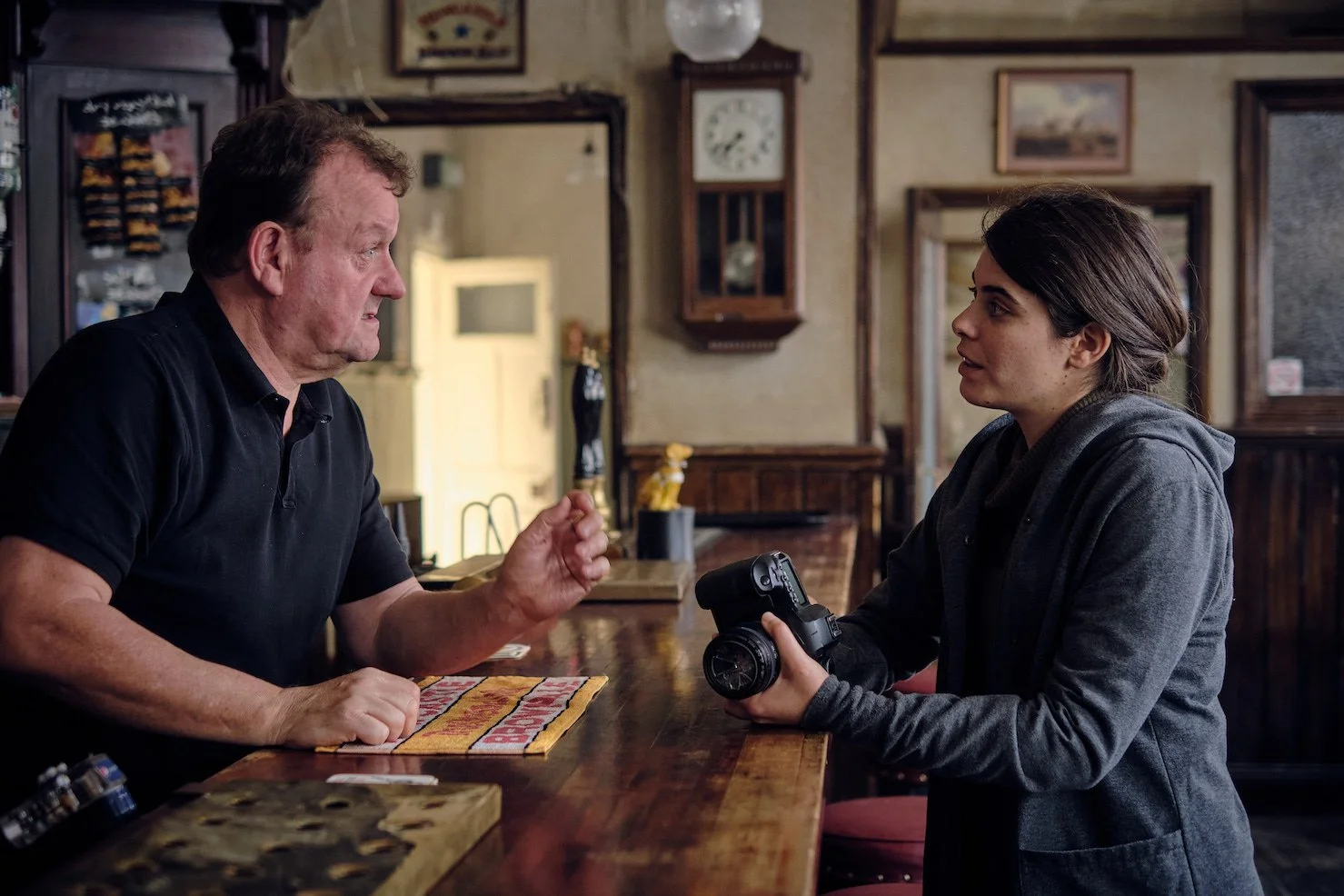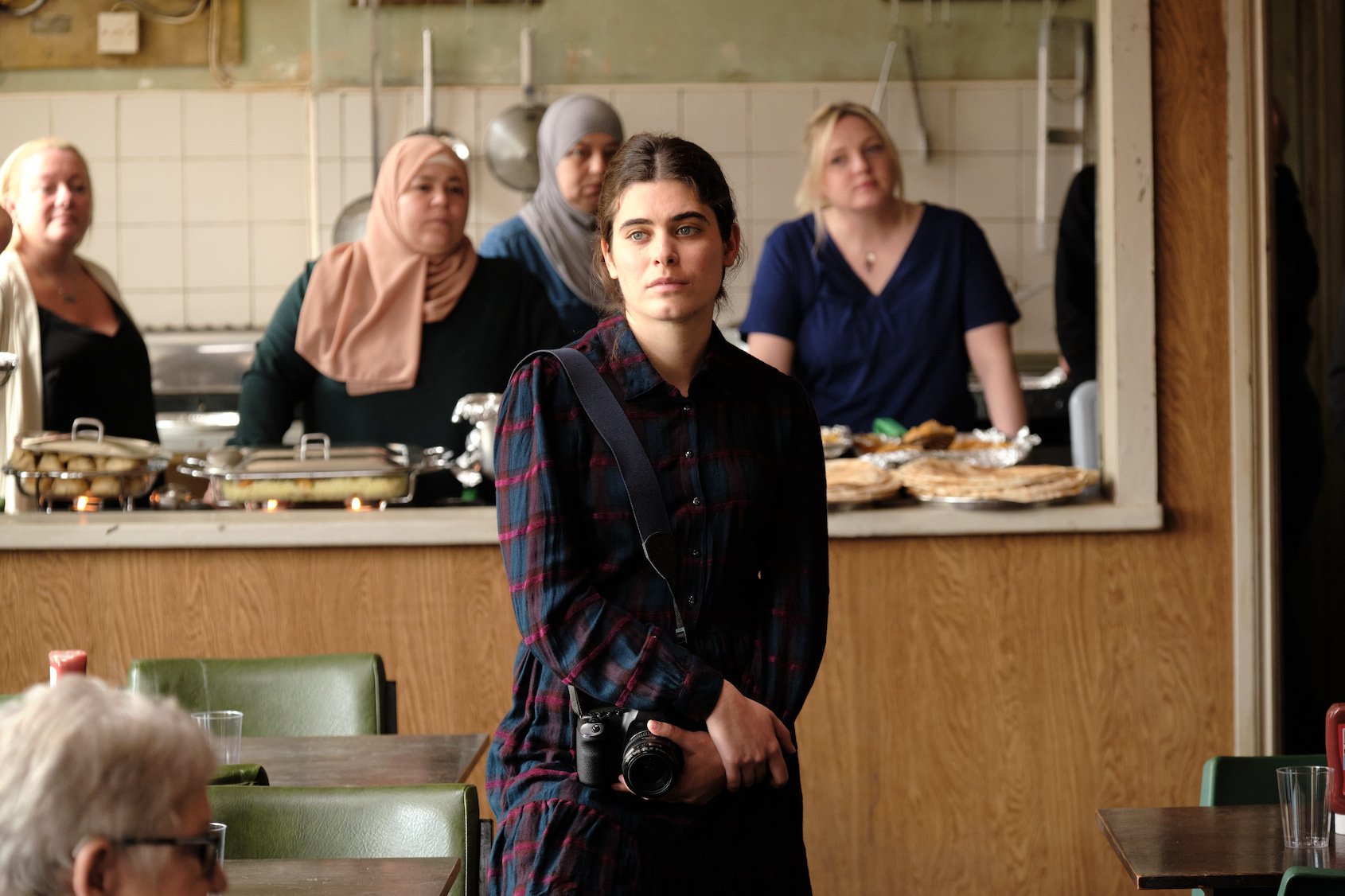Almost MIghty ‘Oak’
Legendary social critic Ken Loach gets ready to hang up his camera AFTER ONE final salvo at UK SOCIETY.
The Old Oak
Director: Ken Loach • Writer: Paul Laverty
Starring: Dave Turner, Ebla Mari, Trevor Fox, Chris McGlade, Claire Rodgerson, Col Tait, Jordan Louis
Belgium / France / UK • 1hr 53mins
Opens Hong Kong May 23 • IIB
Grade: B
As admirable as British director Ken Loach’s work is, as brave and agitating in turning a glaring light on social injustices and inequalities in modern UK, it’s always been a little reserved in its rage. Oh, Loach’s films are angry. It’s just the characters in them usually give in to their stiff-upper-lip British propriety in the end. His latest, The Old Oak, cleaves closely to Loach’s worldview, while departing from it just a bit for what he’s called his swan song. In The Old Oak, Loach and his favourite writer Paul Laverty (Bread and Roses, The Wind that Shakes the Barley, practically everything else) return to the northeast of England, after I, Daniel Blake and Sorry We Missed You, to complete a kind of Trilogy of the Northern Downtrodden. This time, a Syrian refugee, Yara (Ebla Mari), in dying Durham is surprised when the community rallies together and comes to her doorstep with sincere condolences for the death of her father. It’s optimistic in a way Loach never is, suggesting our better angels will ultimately triumph. But that reservation remains. When a radicalised old white dude brings his daughter to the gathering, he wisely hangs back, not wanting to disrupt Yara and her first local ally, Old Oak pub owner TJ Ballantyne (Dave Turner). The hopeful “Go high” sentiment is probably the way to go. I don’t know about you but just once I’d like to see the Yara and TJ characters walk up to the old “reformed” white guy and tell him to get the fuck out of here and he’s not welcome. When does Yara get to be angry?
Yeah, yeah that defeats Loach and Laverty’s purpose in The Old Oak, which mines the grim past to find a way towards a better future, but a little bit of justified grudge-holding would also have given the film some much needed fire. And I know. Loach isn’t about fire. He’s about low-key thought-provoking social realism. Even still, it’s hard to deny his best work is entirely free of fire: Hidden Agenda and Ladybird, Ladybird are as dramatic as they come. But The Old Oak is minor-key, if classic, Loach that long-term viewers will nod their heads at while anyone unfamiliar with how it fits in with his larger body of work will shrug it off as rather mid.
In all fairness, that doesn’t mean this is any less humanistic than Loach normally is. Two major events loom large in The Old Oak, the first being the catastrophic 1984 UK miners’ strike and the second the brutal civil war in Syria. The story begins with Yara, her mother Fatima, and a few other Syrian refugee families moving into a Durham village, or what’s left of it after the coal mine closed. You know what awaits them. Angry white guys hurling racial slurs and making sure the Syrians feel unsafe and unwanted. Among the anti-welcome wagon are TJ’s old friend Charlie (Trevor Fox), busy caring for a chronically ill wife, and Vic (Chris McGlade), the local bloviator about all things “them”, “us” and “our country”. As tensions rise, Yara and TJ strike up a friendship and kick off a Sunday lunch programme that becomes the catalyst for bridging the gap between the Syrians and the battered locals.
And they are battered. The sins of the past hover over The Old Oak, as they do in most of Loach’s films. The devastation of Thatcherism, the indifference of Labour and the sense of being inconsequential informs the rising tide of frustration in towns like Durham’s, captured in naturalistic, drab greys by DOP Robbie Ryan (Poor Things) – except for the sunny moments that illustrate the growing bonds among the players. Charlie’s home is next to worthless now, what with everyone leaving town with the mine closure. The Catholic church is crumbling. Kids go to school hungry. The pub is seen as the last vestige of a dying culture, a safe space to be furiously guarded from outside forces – like Syrian refugees, accepted by the UK for good PR and dumped far away from London. TJ’s a lonely widower, estranged from his son, desperate to keep the Oak open. The village’s residents are, in some ways, as traumatised as Yara.
To Loach and Laverty’s credit they avoid easy villains and insular newcomers. Charlie and his crew are guys that played by the rules and in the end have nothing to show for it. They’re also the guys who are shown what Christian values are – by Muslims – and so are forced to reckon with their own blindspots. The largely non-pro cast gives the film a sheen of authenticity that makes it all the more disheartening; these people feel real for a reason and I would not want to be caught on a dark street with Vic. But Loach and Laverty are confident that reckoning can be for the better, and bless them for it. Personally? I’d like to see Yara tell the assholes to stuff their reform. To hell with going high. — DEK



